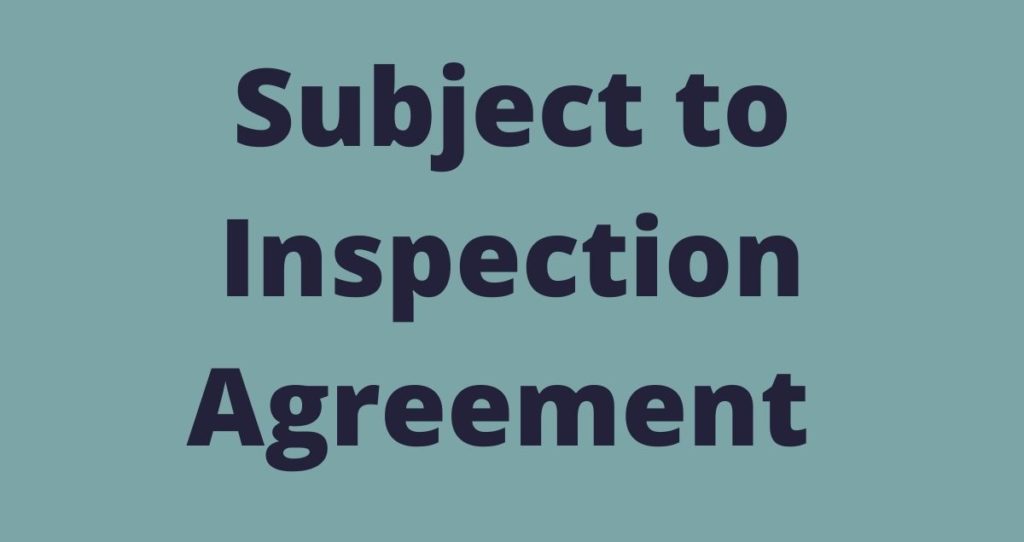What does subject to inspection means?
The subject to inspection a.k.a “submit offers subject to inspection” is an agreement between a home seller and a buyer that lets the buyer inspect the house before finalizing the sale. At the same time, the seller only agrees to show the property on offers they have selected. After signing a purchase and sale agreement, a buyer could agree to close the deal only after the inspection of the house and negotiation on the price based on results from inspection.
Why would subject to inspection contingency be used?
There are many reasons a sale could be subjected to inspection. For example, if there are tenants currently living in the house, it would be difficult to respect the privacy of tenants while bringing in a great number of buyers every day. In this case, the buyer can still submit the offer but agree to close the sale only after inspecting the house.
When a home is subjected to inspection, the sale can not be closed until the inspection is completed. The buyer will have the house inspected and findings such as mechanical issues can be negotiated as part of the deal. For example, if the foundation needs repairs, the seller could fix the foundation or adjust the sale price to include these repairs.
The inspection will be performed by a licensed house inspector and the inspector will try to check the defects related to equipment and their functionalities, and more importantly, hazardous material related to the house.
What Does The House Inspection Cover?
As noted by the mortgage reports, the following are elements that will be covered during a home inspection.
- Electrical systems
- Plumbing systems
- Foundation
- Structural components
- Doors and windows
- floors
- HVAC system
- Attic
Subject To Inspection: How Much Does The Home Inspection Cost?
As noted by Realtor, the home inspection range from $300 to 500. However, this range can change based on the size of the house and location.
>>MORE: 7 Reasons You Should Get A House Inspection
What Happens After A Home Inspection
After the inspection, the inspector will generate a report. Based on findings included in the report, the buyer and seller can renegotiate the price, have the seller repair issues related to the house, or the seller can walkway from the sale.
Benefits of offers subjected to inspection
The subject to inspection offers can benefit the buyer and the seller.
Without proper accommodations due to tenants or family members who are still living in the house, for example; it is always difficult for the seller to show the property to every interested buyer. To reduce the flow of buyers into the house and keep the privacy intact, a buyer can still make an offer without seeing the house.
Since the buyers made an offer on the property they did not inspect, the subject to inspection agreement gives them a chance to negotiate any repairs or defects they find during the house inspection. In addition, buyers have the right to bounce if they don’t like what they see.
Other properties that are usually sold this way are real estate owned(REO) properties. Banks and other lenders do not have enough time to show the property to every buyer. This is why they choose to only show the property on offers they selected and sell their properties as-is. If buyers like what they see, the settlement can be made. This method saves time and money on both sides of the sale.









